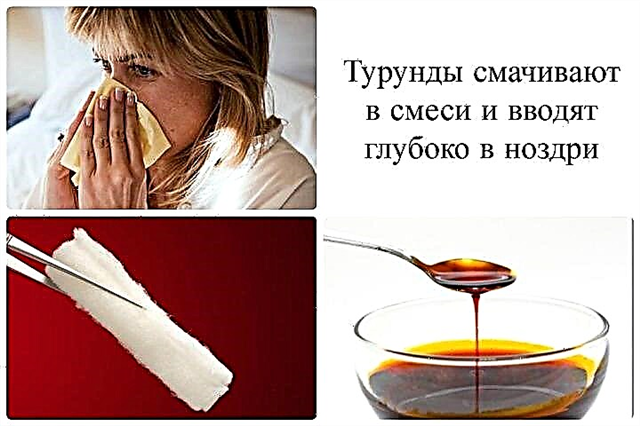The barking cough of adults and children is an alarming symptom that often accompanies many dangerous diseases. Quite often, it looks like a real barking, has a paroxysmal shape and is not accompanied by sputum discharge. Such bronchospasm causes severe discomfort, exhausting and can disturb at any time of the day (but more often at night). Nocturnal seizures are easily attributed to the horizontal position of the body during sleep. This position interferes with the normal blood supply to the lungs and bronchi.
What causes it
 Quite often, a barking cough in adults is of a viral nature. It strongly irritates the lower and upper respiratory tract, provokes receptor edema and affects the vocal cords. Therefore, with this type of cough, the patient's voice grows hoarse, coarse, and sometimes disappears altogether.
Quite often, a barking cough in adults is of a viral nature. It strongly irritates the lower and upper respiratory tract, provokes receptor edema and affects the vocal cords. Therefore, with this type of cough, the patient's voice grows hoarse, coarse, and sometimes disappears altogether.
This symptom should not be ignored. But before starting treatment, it is advisable to determine the source of the problems.
The most common causes of bronchospasm are:
- Viral diseases - rhinovirus, influenza, SARS and so on. In addition to severe coughing attacks, the patient is diagnosed with a fever (up to 40 degrees Celsius), general weakness and malaise.
- Pharyngitis and tracheitis are inflammation of the airways. In this case, the cough occurs immediately after the onset of the disease and greatly disturbs the patient.
- Laryngitis and false croup - with such ailments, barking cough is especially difficult in children. The cause of bronchospasm lies in the inflammation of the airways. Swelling occurs that interferes with normal breathing. Therefore, patients often experience attacks of suffocation.
- Whooping cough with diphtheria is extremely rare today. However, they cannot be completely discounted. At the initial stage, such diseases can be easily confused with the common cold, but as they manifest, it becomes clear that this is not at all about a harmless seasonal ailment. At the same time, a strong barking cough is practically not cured by standard means, which are effective in other cases.
- Allergy to irritants (dust, food, pollen, and so on). Often, in addition to skin rashes, attacks of severe barking cough appear. There is an edema of the larynx and, as a result, respiratory failure.
- Asthma ("cough asthma)". In addition to severe bronchospasm, a person may suffer from attacks of suffocation. The patient's skin acquires an unhealthy pallor.
- Ingestion of a foreign body. Their mechanical overlap automatically leads to the appearance of coughing attacks. Trying to remove a foreign body on your own is dangerous and can lead to complications, such as damage to the vocal cords. Therefore, it is recommended to immediately call an ambulance.
How to treat bronchospasm
 Remember that an adult's barking cough is not the primary goal of treatment. This is just one of the symptoms. Therefore, all rehabilitation measures must be aimed at eliminating the cause of bronchospasm, a disease that provoked a barking type cough. At the same time, cough attacks can and should also be fought. Especially when they greatly exhaust the patient, give him and his environment discomfort.
Remember that an adult's barking cough is not the primary goal of treatment. This is just one of the symptoms. Therefore, all rehabilitation measures must be aimed at eliminating the cause of bronchospasm, a disease that provoked a barking type cough. At the same time, cough attacks can and should also be fought. Especially when they greatly exhaust the patient, give him and his environment discomfort.
The main task in the treatment of dry barking cough is to transform it into a productive form. In other words, it is necessary for phlegm to appear and the cough to become moist. At the moment, the following are actively used in the treatment process:
- expectorant drugs;
- mucolytic drugs;
- antitussives.
Only the attending physician should prescribe a specific drug based on the underlying cause of the cough. In addition, we recommend that you use antitussives with the utmost care. Typically, most of these drugs are based on drugs that are addictive and can be dangerous to children.
It is necessary to take antitussive drugs only if a dry barking cough has been observed for a long time and does not go away.
As for mucolytics, as well as expectorant drugs, they are rarely used in the treatment of a barking cough (usually at the stage of its transformation into a wet cough). Do not forget that taking expectorant medications (like standard inhalations) does not at all guarantee a decrease in the manifestations of cough. In some cases, with strong thinning and sputum secretion, they can provoke an increase in coughing attacks for a while. General recommendations for treating most types of viral cough (including intense barking cough without fever) are as follows:
- Use inhalation. They moisturize the mucous membrane well and contribute to the liquefaction of sputum.
- Drink plenty of fluids. In viral diseases, the blood thickens, and an additional load is put on the heart. Drinking plenty of warm water thins not only phlegm, but blood.
- Breathe in cool (but not cold) moist air to keep your airways from drying out excessively. Take regular walks, ventilate rooms.
Some nuances in treatment
If a barking cough is caused by whooping cough or parapertussis, the cause must be treated first of all. For this, antibiotics are used, which are prescribed by a doctor. Remember to breathe fresh air as often as possible.
After a course of rehabilitation, cough attacks can be observed for 2-3 months. Don't worry, this is normal.
If we are talking about bronchospasm that accompanies allergies, the treatment will be different. In order to eliminate seizures, it is enough to drink a course of antihistamines (they are necessarily prescribed by a doctor).
 In case of infection of the upper respiratory tract and the appearance of a strong dry cough, it is necessary to use medications that relieve swelling. In addition, antibacterial and antiviral agents are used. In this case, you should not take medications for expectoration. They do not have any positive effect and can further aggravate the clinical picture. The following additional symptoms with a barking cough should be the reason for starting treatment:
In case of infection of the upper respiratory tract and the appearance of a strong dry cough, it is necessary to use medications that relieve swelling. In addition, antibacterial and antiviral agents are used. In this case, you should not take medications for expectoration. They do not have any positive effect and can further aggravate the clinical picture. The following additional symptoms with a barking cough should be the reason for starting treatment:
- sore throat;
- runny nose;
- swollen lymph nodes;
- hoarseness of voice, hoarseness;
- general malaise;
- headache;
- swelling of the laryngeal mucosa;
- difficulty breathing;
- high temperature.
Complications are possible. How to prevent them?
A barking type cough is dangerous not only for its manifestations (irritation of the mucous membrane, asthma attacks, and so on), but also for possible complications, for example, the onset of an inflammatory process. Therefore, at the first symptoms, we recommend that you immediately contact a specialist and establish the cause of the attacks. Otherwise, dangerous complications cannot be avoided. What can they be?
 Ignoring the problem can lead to asthma, an almost incurable disease. Another dangerous complication is a limited supply of oxygen to the body (respiratory failure). Cough seizures without proper treatment can cause airway occlusion. We are talking about a violation of their patency due to damage to the walls and blood vessels.
Ignoring the problem can lead to asthma, an almost incurable disease. Another dangerous complication is a limited supply of oxygen to the body (respiratory failure). Cough seizures without proper treatment can cause airway occlusion. We are talking about a violation of their patency due to damage to the walls and blood vessels.
In addition to all of the above, a cough can be complicated by laryngitis, bronchitis, pneumonia, myocarditis (inflammation of the heart muscle). In some cases, doctors diagnose polyneuropathy - multiple lesions of peripheral nerves.
Therefore, if you experience attacks of a barking cough, consult a doctor, do not self-medicate and do not delay the start of rehabilitation measures.In addition, you can help relieve seizures by:
- maintain an optimal humidity level in the room;
- do not squeeze the chest with heavy clothing;
- if there is no temperature, put mustard plasters and compresses;
- do not eat during coughing attacks.
Summing up, I would like to note the seriousness of the situation with a barking cough. Such a symptom is dangerous both in itself and as a manifestation of a particular disease.
It makes no sense to treat bronchospasm if its cause lies in a dangerous viral disease. At the same time, do not forget that in some cases the intensity of coughing attacks can still be significantly reduced.



